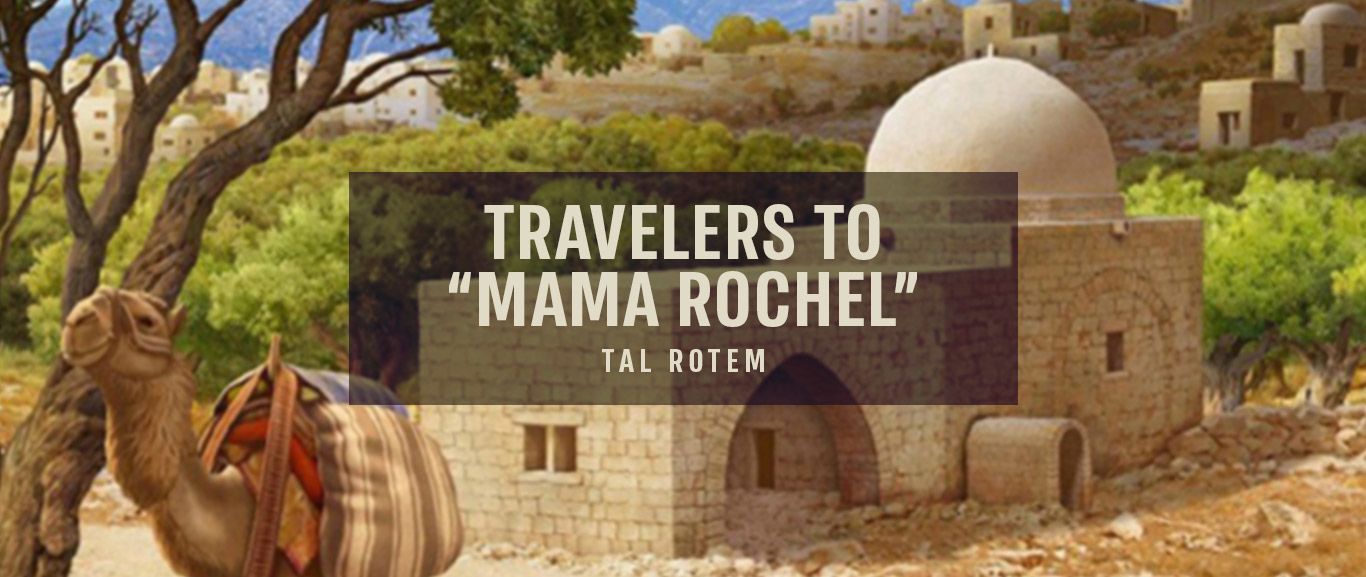
Travelers to “Mama Rochel”
Date of Passing: 11-Cheshvan. Thus said Hashem: "Restrain your voice from weeping and your eyes from tears - they will return from the enemy's land. There is hope for your future ... and your children will return to their border" (Yirmiyahu 31:15-16) Hashem promises to bring His children back to their borders!

Editor’s Update: Mama Rochel wept for her children as they passed her grave site in Beth Lechem to leave Eretz Yisrael.
Thus said Hashem [to Rochel]: “Restrain your voice from weeping and your eyes from tears – they will return from the enemy’s land. There is hope for your future – the word of Hashem – and your children will return to their border.” (Yirmiyahu 31:15-16)
During the current war, let us all raise our voices and weep with Mama Rochel to bring back our hostages! Light a memorial candle for her, say Psalms, say Tikkun Klali, pray for the hostages, give tzeddakah (charity), support Spiritual Iron Swords for Soldiers, treat each other kindly.
The 11th of Cheshvan is the day of our Mother Rochel’s passing. Her death was in the year 2,208 since the creation of the world.
Dear Mother to me, dear …”, sang someone sitting next to me on one of the times I was with our Mama Rochel. To be with Mama Rochel is to feel that you are truly with a dear and beloved mother. A mother who listens to each and every word that comes to your heart.
Crowds ascend to visit the resting place of Mama Rochel, filled with inexplicable love and admiration. You will not hear them say, “We came to the grave site of Mama Rochel”, but rather “We’re traveling to Mama Rochel” – to Mother Rochel, as if they had come for a family visit, to visit mom, to talk to her, to pour out their hearts on the covering that surrounds the tombstone. The covering over her tombstone has heard many stories and holds rivers of tears – the tears of the children of Mama Rochel, the people of Israel.
What is there about her, in Mama Rochel, a dear mother to us, that we feel this way?
To understand this, one must look at the short life of Rochel, whose final resting place is next to the road. This location is not by chance.
“A voice is heard on high, wailing, bitter weeping, Rochel weeps for her children; she refuses to be consoled for her children, for they are gone.“ (Yirmiyahu/Jeremiah 31:14)
The words of the Midrash brought by Rashi about the verse: “And I came from Padan” (Bereishit/Genesis 48:7), which Jacob said to Joseph before his death. “Although I trouble you to take me to be buried in the land of Canaan, even though I did not do so for your mother, because she died near Bethlehem. I know that there are hard feelings in your heart against me. But you should know that by the Word of Hashem, I buried her there so that she should be of aid to her children when Nebuzaradan would exile them and they would pass by way of Rochel’s burial site. Rochel would go out onto her grave, and weep, and seek mercy for them, as it says, ‘A voice is heard in the heights…‘. And the Holy One, Blessed is He, answers, ‘There is reward for your act‘, says Hashem.’ “
Herein lies a very deep idea, for already at first glance it is puzzling. After all, Leah is the mother of half the tribes, while Rochel is the mother of only two. Shouldn’t Leah have been buried there rather than Rochel? When we delve deeper, we find that the words are doubly puzzling about the verse, “Leah’s eyes are tender” (Bereishit / Genesis 29:17) about which the Midrash says, “Is it possible that the verse is condemning the righteous Leah? Rather, Rabba said, “It is not derogatory, but praise to her! It is said that Rivka had two sons (Esav and Yaakov), and Laban had two daughters (Leah and Rochel) – the eldest to the eldest (Esav would marry Leah) and the youngest to the youngest (Yaakov would marry Rochel). She (Leah) would sit and cry until her eyelashes fell out.“ Indeed, this righteous woman (Leah) merited that she was not given to the wicked Esau, but rather to Yaakov. And not only that – half of the tribes came from Leah, and she even merited to be the one buried with our ancestor Yaakov in the Cave of the Patriarchs in Hevron.
After studying this wonderful midrash, our confusion increases many times over, as I mentioned. After all, if Leah has such a power of prayer, if she is able to cry until her eyelashes fall out, then surely, she should be buried there on the road because she is the one who offers tremendous prayers. What would Israel need when it goes into exile, if not Leah’s great power of prayer?
And another question that might lead to solving the riddle – Why, as soon as Rochel begins to pray for the people of Israel, Hashem silences her and says, “Restrain your voice from weeping,” while Leah prays and prays and sheds a river of tears and Hashem lets her pray and weep and does not say “restrain,” even though He accepts her prayer?
Leah made use of the mechanism of thanksgiving; Rochel made use of the mechanism of silence (Bereishit Rabbah, Parsha 71). The “mechanism” one needs is called a “mouth“. The mouth is the mechanism with which I thank. If so, what is the mechanism of silence? Do you need a mechanism to be silent? After all, silence is inaction and not speaking. In order to not do something, you don’t need any mechanism.
There is silence and there is silence.
There is a silence that is indeed oblivion and avoidance. Rochel stood on the pinnacle of spiritual happiness because in a short time she would marry our ancestor Yaakov, the elite of the Avot (Avraham and Yitzchak). But in a moment, she destroyed her world. Even after a seven–year wait, she learned that her father was preparing Leah in her place. Is it possible to describe such a difficult situation? It means that if she does not marry Yaakov, the chances are she will take her sister’s place as the wife of the evil Esav. A tremendous fall from the heights to the depths can be prevented with a little whisper in Yaakov’s ear: “Be careful! My father wants to replace me with Leah”. This is a true statement and there is no problem of slander or any other sin. Just one small point – Leah might be embarrassed!
This is a good enough reason for Rochel to gather all her inner powers and decide that she is taking on all this suffering. She is simply silent and does not reveal anything to Yaakov. Silence is indeed a mechanism.
But that’s not all.
“And Hashem remembered Rochel, and Hashem heard her, and opened her womb” (Bereishit/ Genesis 30:22). Rashi says: “And Hashem remembered – He remembered on her behalf that she gave her signs over to her sister.” The meaning of the words is that when Yaakov and Rochel were about to get married, they set signs between them so that there would be no trouble. Yaakov could verify that she is indeed Rochel and not Leah. Leah does not know these signs. When Yaakov asks her (Leah) for the signs and she does not know them, she will be shamed and disgraced. So, Rochel hurried and handed the signs to Leah.
And the question arises – if the giving of signs is a reason to remember Rochel and her barrenness, why did Hashem wait six years and not remember her immediately – because Rochel’s giving of signs was not now but six years before?
The verse preceding “And Hashem will remember Rochel” is “…and Reuben went out … and he found duda’im in the field … and Rochel said to Leah, ‘Please give me some of your son’s duda’im.‘” (Bereishit /Genesis 30:14) And Leah said “Was your taking my husband insignificant? – And to take even my son’s duda’im!” (Bereishit / Genesis 30:15)
What went through Rochel’s head when she heard such a reaction? After all, these are incredibly outrageous words! What exactly did she ask for – duda’im that are known to be an aid for fertility. And what does Leah answer her: “You took my husband and now you also want my son’s duda’im!“
“You took my husband?!!” I, Rochel, gave you Yaakov with the blood of my heart, with tremendous self-control to gather all the strength of my soul to be silent, and even more – to give you the signs. And you can say to me, “You took my husband” as if I was the one who took him from you …” But no, that’s how Rochel reacted. In her immense greatness, Rochel is not shaken nor hurt. Rather, she justifies Leah and says she is right and does as Leah wishes.
Here we see that Rochel’s silence six years earlier was not the transcendence of a single moment, but that even now after six years, she is still at the same level and is entirely at peace with the same silence – with the same passing of signs. So now is the time ” … and Hashem remembered Rochel.”
We see two great women – Leah works on the power of prayer and indeed reaches the heights and is able by her prayer to achieve wonderful things. In contrast, Rochel works on perfecting her mouth – the “mechanism of silence”. Rochel worries that her mouth should be a holy mouth, no wonder Rochel just opens her mouth in prayer and she is already answered, she just starts to cry and already she is answered from heaven – “Keep your voice from crying”. Perhaps this is the reason why Rochel is buried near the road and not Leah – when Israel goes into exile, they do not have the time to wait for an answer until Leah’s eyelashes fall out from crying and prayers. They need an answer immediately! Rochel was buried there because when she opens her holy and pure mouth she will be answered immediately.
No wonder Rochel’s children, the people of Israel, come in droves to weep at Mama Rochel’s. And it’s not just pouring out one’s heart and unloading the burdens lying there. It’s getting lots, but lots, of power. A mother, such a fit advocate, who weeps for her children and is immediately answered. A mother who cries inside is answered – strength, faith, calmness, peace, and security. A mother who went through so much suffering and anguish in the few years of her life and remained staunch and strong – she never broke.
On the one hand, Mother Leah taught us about the power of prayer, about the use of the mechanism of our mouth. Mother Rochel, on the other hand, taught us about the power of silence, accepting anguish in love, saying thank you and not being resentful or embittered even when it hurts. Rather, understand, observe, and delve deeply into the idea that we accept and understand that everything is for the best. This power of silence is enormous even when someone annoys us, hurts us, and we, instead of reacting impulsively, instead of delivering a crushing wound … are silent. Do not respond. Conflicts, disputes, and slander are avoided. After all, this is what Mother Rochel did even though there was no slander or offense. She could have warned our ancestor Yaakov! She was silent and sent a huge message to all her descendants.
A tremendous legacy is left to us by Mama Rochel buried by the road – on each of the crossroads of our lives: the difficult moments, the trials, the struggles, and so on – so that we can know that everything is for the best and that we can be strengthened in emuna. This is what our Mama Rochel did all the years of her life – she remained strong and steadfast in her emuna, and Hashem’s help, so will we!
After delving into things, I realized why the person sitting next to me began his prayer with the song “Dear Mother to me, dear … “


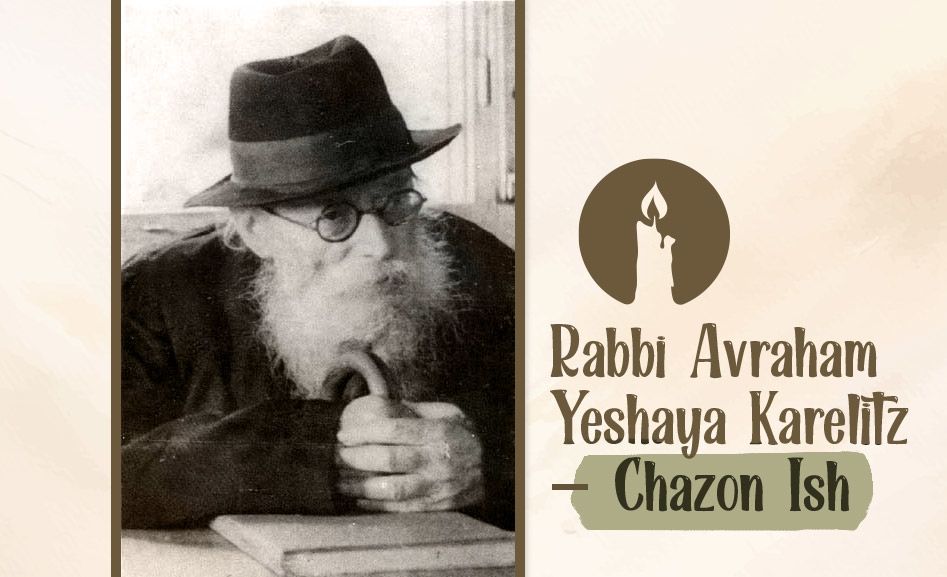

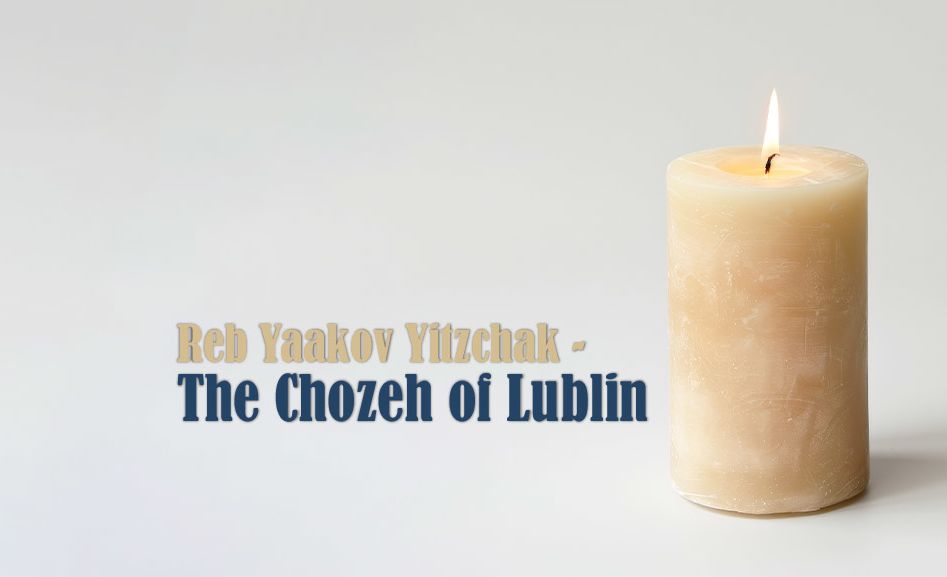
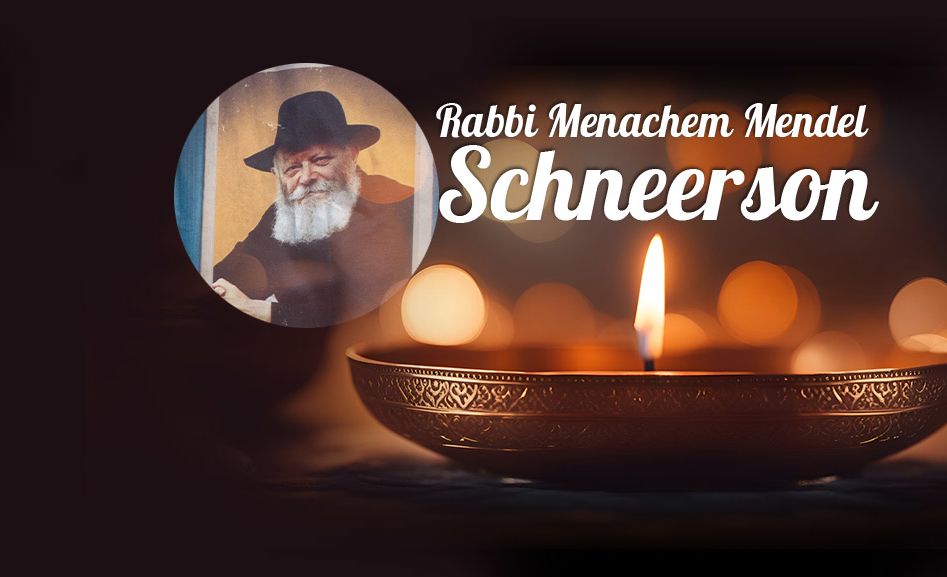
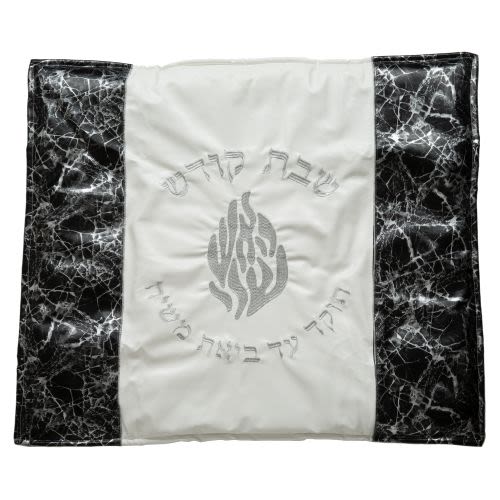
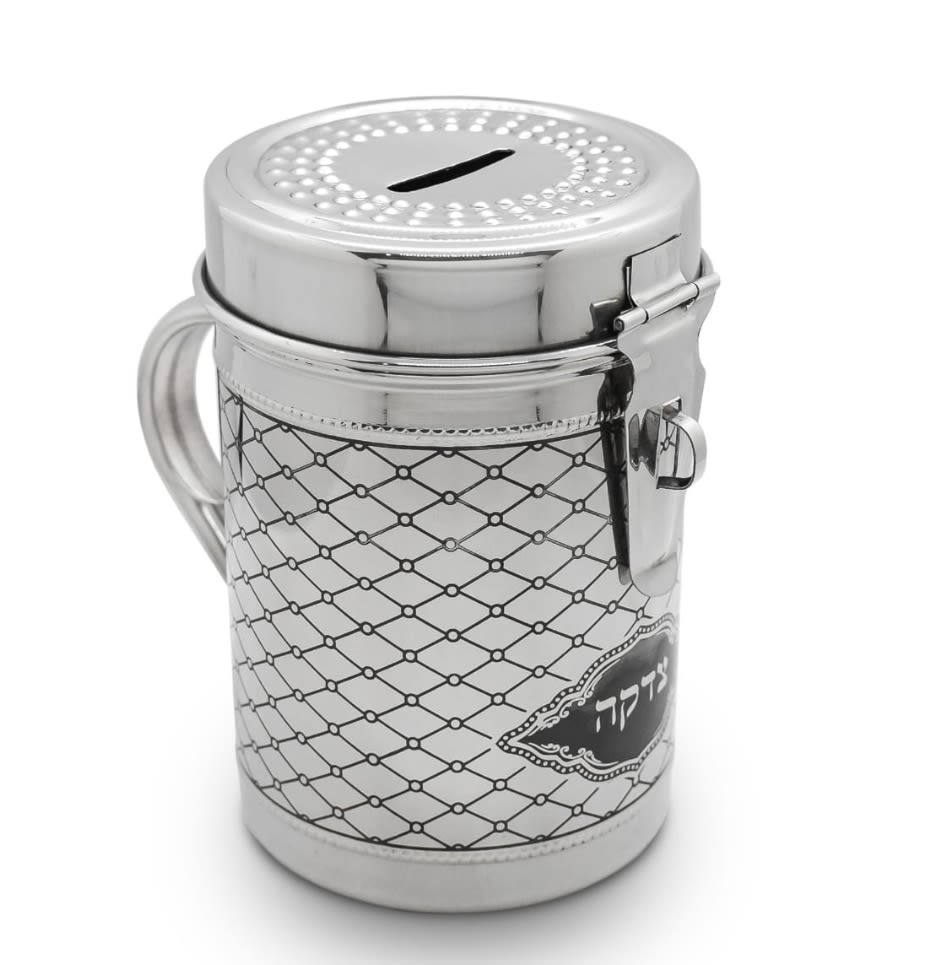
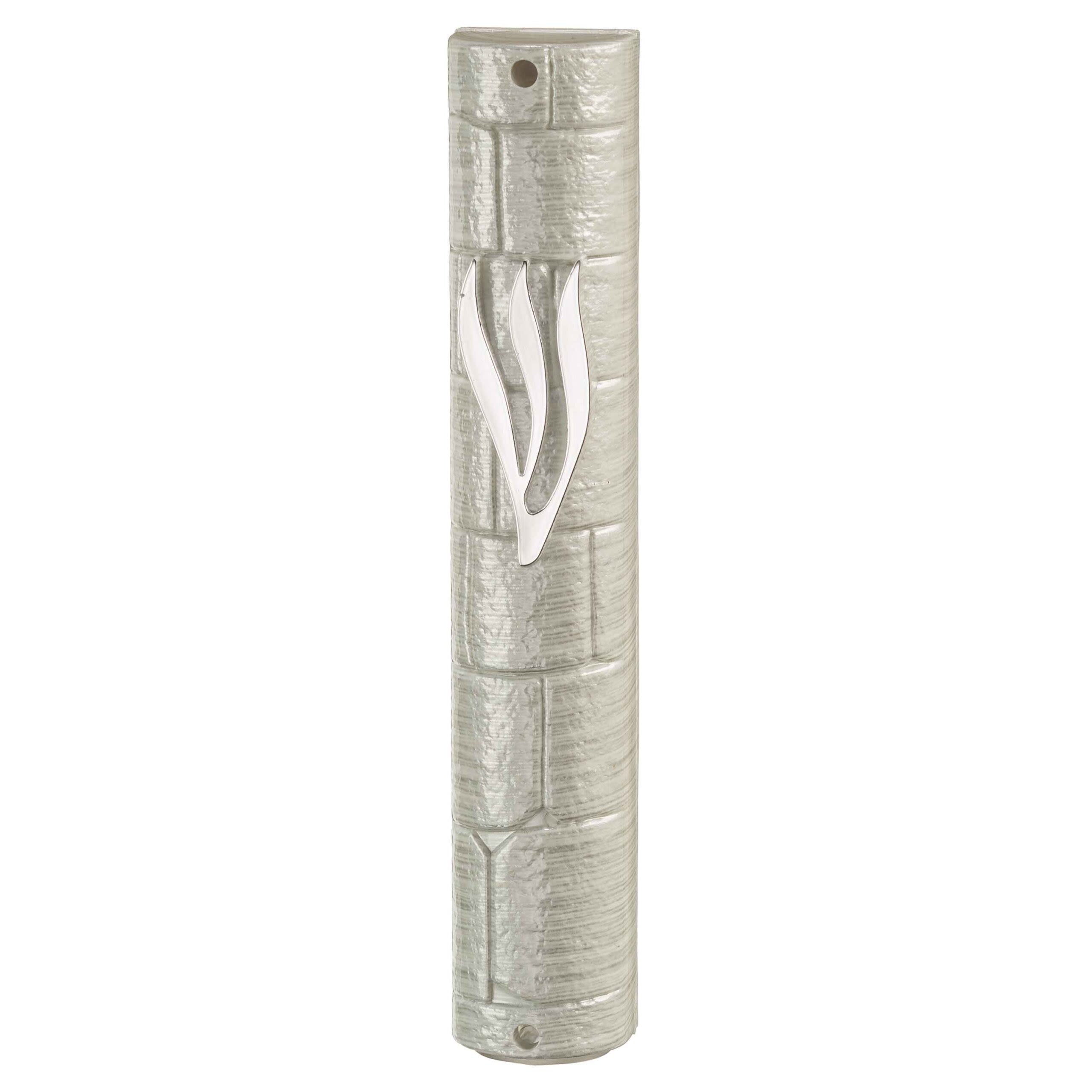

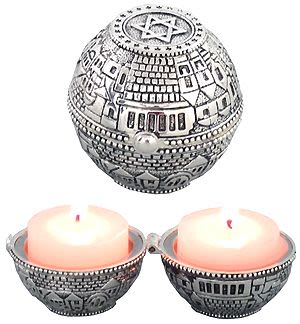
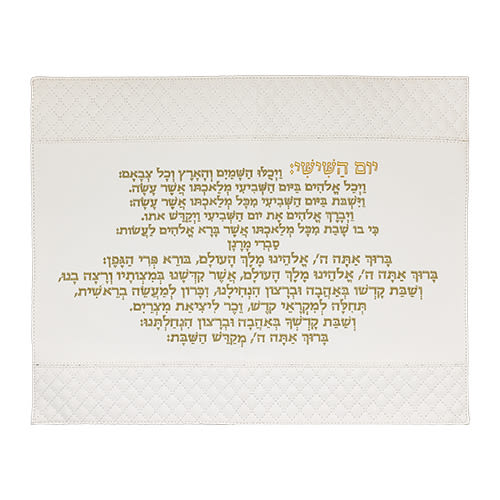
Tell us what you think!
Thank you for your comment!
It will be published after approval by the Editor.